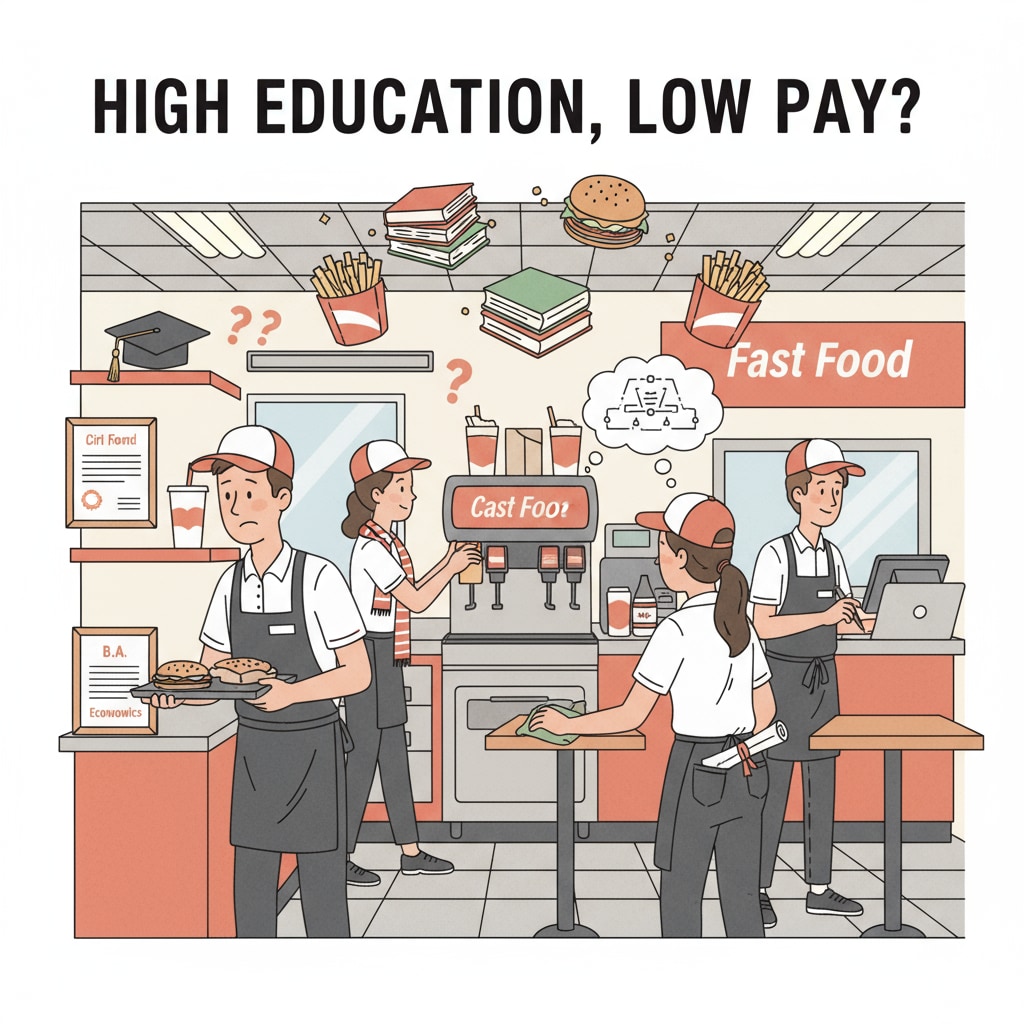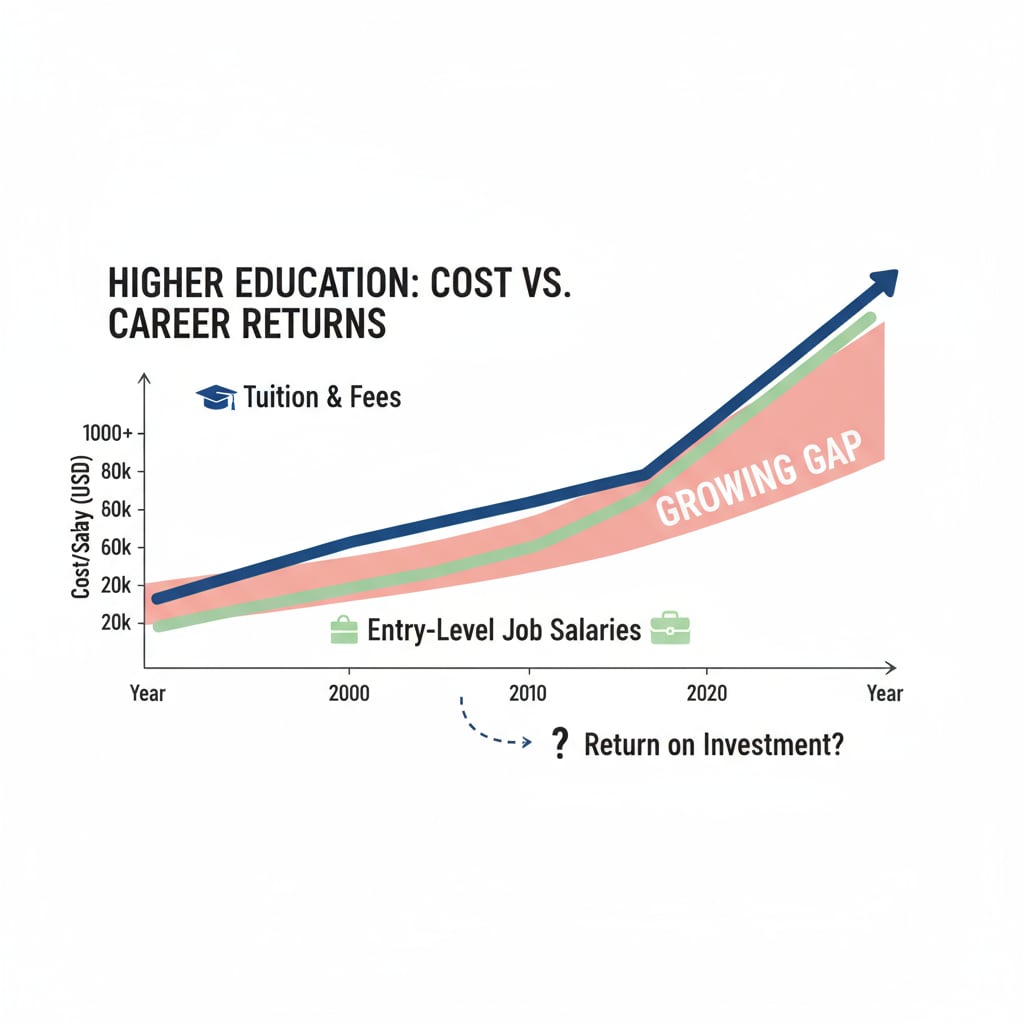In today’s ever-evolving job landscape, the concepts of university degrees, job market, and career development are intricately intertwined. The year 2025 has witnessed a rather perplexing phenomenon – an increasing number of individuals with high academic qualifications finding themselves in long-term employment within the fast food industry. This has inevitably led to a reevaluation of the true worth of a university degree.

The Widening Gap between Educational Investment and Career Returns
For decades, obtaining a university degree has been seen as a golden ticket to a prosperous career. Parents and students alike have invested significant time, effort, and financial resources into higher education, expecting substantial returns in the form of well-paying jobs and promising career trajectories. However, the current job market seems to be telling a different story.
According to Bureau of Labor Statistics, the cost of higher education has been steadily rising over the years, while the job prospects for many graduates have not proportionally improved. Many students are graduating with a mountain of debt, only to find themselves in positions that do not fully utilize their academic knowledge and skills. For example, a recent study by National Center for Education Statistics revealed that a significant percentage of liberal arts graduates are working in jobs that do not require a bachelor’s degree.

The Role of K12 Education in Preparing for Future Job Realities
If the value of a university degree is being questioned in the current job market, then it is essential to look at the foundation – K12 education. K12 education should play a crucial role in equipping students with the skills and knowledge necessary to thrive in the future job market.
One of the key aspects that K12 education needs to focus on is practical skills training. Instead of solely emphasizing theoretical knowledge, schools should incorporate more hands-on learning experiences, internships, and vocational training programs. This will help students develop skills that are directly applicable to the job market, such as communication, problem-solving, and teamwork.
In addition, K12 education should also encourage students to explore different career paths from an early age. By exposing students to a wide range of industries and job roles, they can make more informed decisions about their future academic and career choices. This could include inviting guest speakers from various fields, organizing career fairs, and providing career counseling services.
In conclusion, the situation in 2025 where highly educated individuals are taking up long-term positions in the fast food industry is a wake-up call. It highlights the need to reevaluate the value of university degrees in relation to the job market and career development. While a university degree still holds significance, it is clear that adjustments need to be made in both higher education and K12 education to better align with the evolving demands of the job market.
Readability guidance: The article uses short paragraphs to clearly present ideas. Each H2 section provides key points for better understanding. The use of passive语态 is minimized, and transition words like ‘however’, ‘for example’, and ‘in addition’ are used to enhance the flow of the text.


